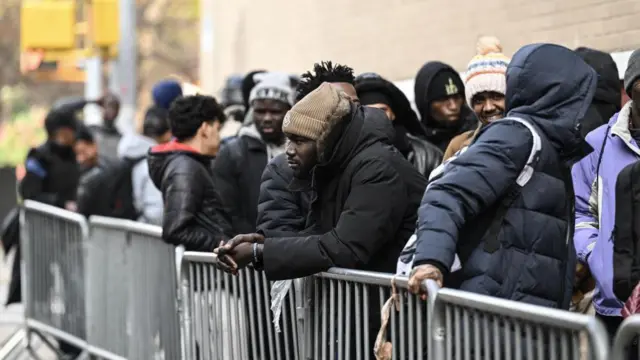A United States federal judge has raised strong concerns about the Trump administration’s decision to deport Nigerian and Gambian migrants to Ghana.
She described the move as an attempt to bypass U.S. immigration laws and warned that the arrangement could put lives at risk.
Judge Tanya Chutkan, based in Washington, D.C., held an emergency hearing after lawyers for some of the deportees argued that their clients expected to be returned to their home countries — Nigeria and Gambia, where they feared torture or persecution. Instead, they were sent to Ghana, a country with which they had no direct ties.
Following the hearing, Judge Chutkan ordered the Trump administration to submit a detailed report by 9 p.m. on Saturday. The report must explain what steps were being taken to prevent Ghana from transferring the migrants to Nigeria and Gambia. She stressed that the arrangement seemed designed “to make an end run” around legal requirements that stop the U.S. from deporting migrants to places where they could face serious danger.
“These are not speculative concerns,” Judge Chutkan said. “The concerns are real enough that the United States government agrees they shouldn’t be sent back to their home country.”
Ghana’s Role in the Controversial Deal
Earlier in the week, Ghana’s President John Dramani Mahama confirmed that his government had signed an agreement with the U.S. to accept West African deportees. He revealed that 14 migrants had already arrived in Ghana as part of the deal.
This arrangement forms part of President Donald Trump’s broader strategy of sending undocumented migrants to “third countries.” The policy aims to speed up deportations and put pressure on undocumented immigrants in the U.S. to leave voluntarily.
Migrants’ Experience Raises Alarm
The controversy deepened after a lawsuit was filed on Friday on behalf of five of the deported migrants. The suit claims that the men were taken from a Louisiana detention center, shackled, and flown on a U.S. military plane without being told where they were headed.
According to the complaint, some of the migrants were even restrained in straitjackets for 16 hours during the flight. The lawsuit also states that the five men had U.S. legal protections that prevented them from being deported to their home countries.
One of the deportees, a bisexual man, has already been sent to Gambia and is now reportedly in hiding. The remaining migrants are being held in an open-air facility operated by the Ghanaian military, where conditions are described as harsh and unsanitary.
U.S. Government’s Response
In response to the lawsuit, the U.S. Department of Justice argued that it no longer had custody of the migrants and insisted that the court did not have authority in matters involving diplomatic agreements. The department also pointed to a Supreme Court ruling that allows the U.S. government to deport migrants to countries other than their own.
At the same time, U.S. Department of Homeland Security spokesperson Tricia McLaughlin denied the allegations that detainees were strapped into straitjackets during the flight. However, she did not comment on the larger accusation that immigration laws were being circumvented.
The deported migrants are being represented by the American Civil Liberties Union (ACLU) and Asian Americans Advancing Justice. Both organizations argue that the Trump administration’s decision violates legal protections and exposes vulnerable people to unnecessary risks.
In Ghana, the move has sparked intense criticism. Opposition lawmakers demanded on Friday that the agreement with Washington be suspended immediately. They argued that Parliament should have debated and approved the deal before it was implemented.
According to the lawmakers, the deal “risks our country being perceived as aligning itself with the U.S. government’s current immigration enforcement regime, one which has been criticized as harsh and discriminatory.”
The controversy has created diplomatic and humanitarian challenges for all sides involved. While the Trump administration insists it is acting within its rights, human rights advocates and legal experts argue that the deportations highlight a troubling attempt to sidestep the rule of law.
As Judge Chutkan made clear, the situation goes beyond speculation. For the migrants now stranded in Ghana, the consequences are immediate, and the fears of persecution remain painfully real.
Source: Reuters


Comments are closed.